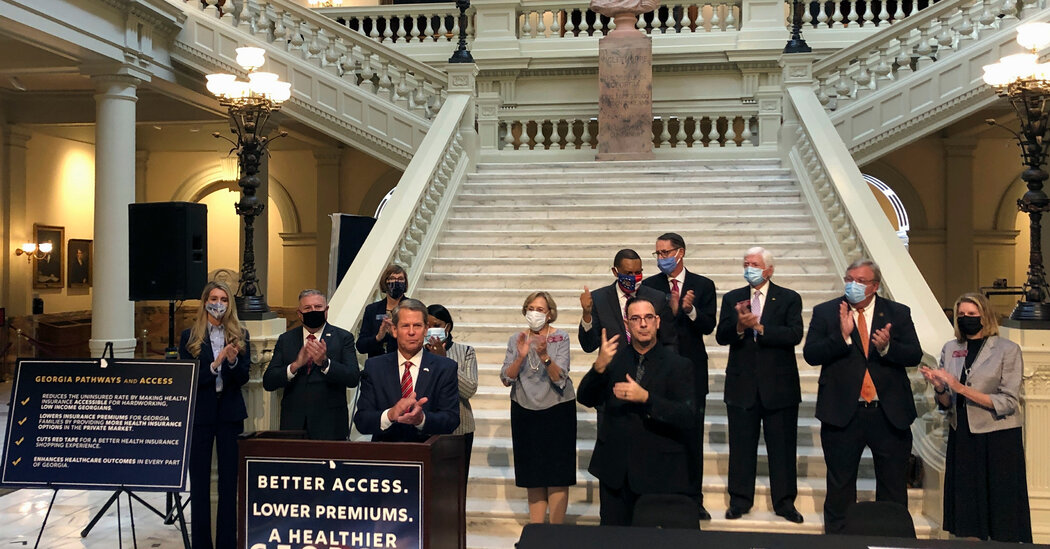A group of Democratic lawmakers accused Georgia Pathways to Coverage, the only Medicaid work requirement program in the country, of spending little of its funding on health benefits.
A group of Democratic senators said on Wednesday that they had called for a federal watchdog investigation into a controversial Medicaid work requirement program in Georgia, accusing its administrators of churning through tens of millions of dollars in funding while enrolling a fraction of the low-income residents estimated to be eligible for it.
The program, called Georgia Pathways to Coverage, has been hailed by the state’s Republican governor, Brian Kemp, as an innovative approach to administering Medicaid, which covers more than 70 million people in the United States. It is the only Medicaid work requirement program currently operating.
Medicaid coverage is still available in Georgia without a work requirement, but the state has one of the strictest eligibility limits in the nation. Those who receive coverage through Pathways would otherwise not be eligible for Medicaid, but they must show that they are working, enrolled in college or doing community service for at least 80 hours each month to qualify.
The program, which is set to expire next year, has been closely watched by Republicans and conservative policy experts as a possible template for restructuring Medicaid in the next Trump administration. Republican lawmakers in recent months have discussed legislation that would institute Medicaid work requirements.
In a letter sent on Tuesday to Gene L. Dodaro, the head of the Government Accountability Office, the Democratic lawmakers, including Georgia’s two senators, Raphael Warnock and Jon Ossoff, pointed to the high costs of the program and the way the money had been spent: at least $40 million as of June, with more than 80 percent going to administrative and consulting costs.
“While hundreds of thousands of Georgians are left without the health coverage they need, taxpayer dollars are being routed into the pockets of eligibility system vendors and consultants,” wrote the lawmakers, a group that also included Senator Ron Wyden of Oregon.
